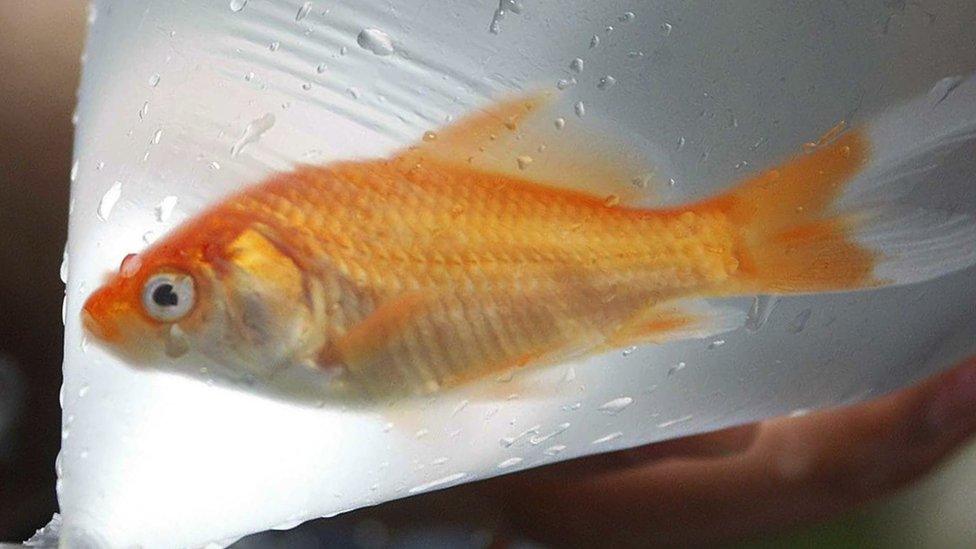Bristol fairgrounds banned from giving goldfish as prizes
- Published

Giving goldfish as prizes has been called "totally unaccaptable" by a Bristol City councillor
Goldfish are no longer allowed to be given as prizes at funfairs and carnivals on council land in Bristol.
The city's mayor has told officers to rewrite events contracts, after being informed about a campaign by the RSPCA.
Conservative councillor Jonathan Hucker, who highlighted the appeal, said the tradition was "cruel and outdated".
Giving live animals as prizes is illegal in Scotland but in the rest of the UK it is up to local councils.
Entertainment involving live animals is already banned at all events on Bristol City Council land, the Local Democracy Reporting Service said.
Mayor Marvin Rees said: "I will ask the events team to ensure the contract is updated to clearly exclude live animals as prizes."

Mr Hucker said such an outdated practice should have no place in modern society
Mr Hucker raised the RSCPA's Pets as Prizes campaign at Bristol City Council member forum on Tuesday.
He said that most people did not know how to care for fish properly, with many dying from shock or poor treatment within hours or days in their new home.
"The mayor may not have been made aware of this national campaign, but I am sure he will agree with me that this commercial practice is totally unacceptable in our more enlightened age," Mr Hucker said.
"The use of live animals as trophies disrespects, and exploits, species as well as being extremely harmful for their welfare.
"We are fortunate to live in far more enlightened times. It is certainly no 'fun at the fair' for these captive creatures."
In a written reply, Mr Rees said: "I fully support your aims."
The RSPCA's Pets as Prizes campaign said it regularly receives calls relating to animals being given away as prizes, particularly goldfish.
It said goldfish are often held in unsuitable plastic bags for long durations and taken to homes that are not adequately prepared to meet their welfare needs.

Follow BBC West on Facebook, external, Twitter, external and Instagram, external. Send your story ideas to: bristol@bbc.co.uk , external
Related topics
- Published30 August 2019

- Published27 August 2019
